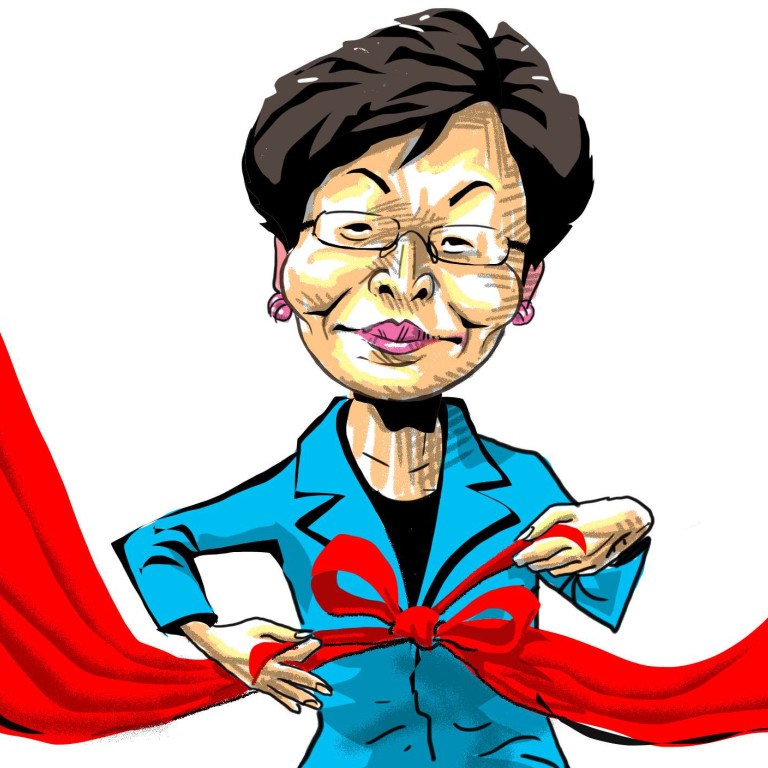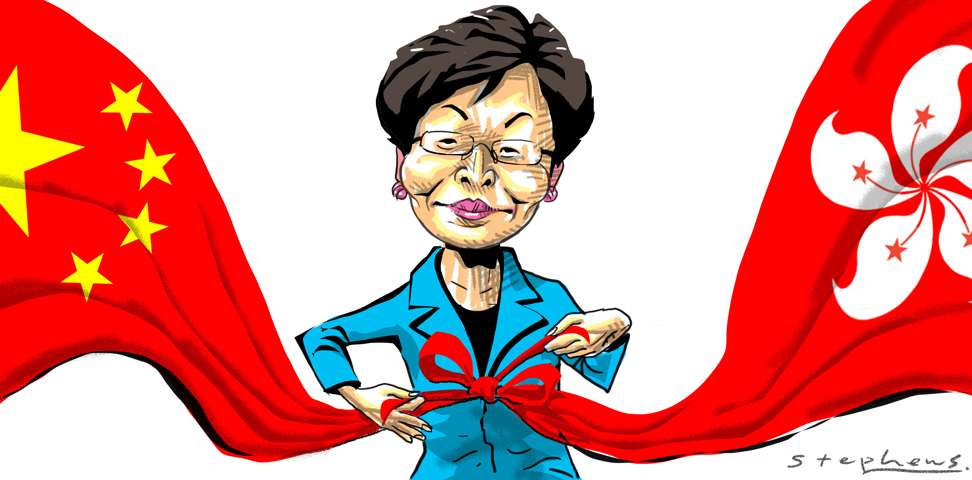
Carrie Lam, the presumed next leader of Hong Kong, is no clone of divisive Leung Chun-ying
Gary Cheung says the former chief secretary just needs to bring back her inclusive leadership style that in the past has helped to defuse, or at least set out to defuse, tension in society

For weeks, there had been speculation that Li is a supporter of Tsang’s and that he and his sons may cast their vote for him in the secret ballot on Sunday to select Hong Kong’s next leader. People in favour of the former financial secretary had hoped that support from the Li family could encourage more pro-establishment electors to vote for the popular underdog as well.
That hope has now been dashed.
This is a timely reminder that realpolitik reigns in the chief executive poll.
Despite Lam’s nickname ‘CY 2.0’, I am optimistic she would make a better chief executive than Leung in terms of bridging social divides
The central government’s preference for Lam stems from its desire for a chief executive who has the capability and commitment to tackle thorny issues and, to a lesser extent, someone relatively acceptable to Hongkongers. As Beijing expects the next chief executive to have the ability to handle the complicated situation in Hong Kong in the next few years, it has reservations about Tsang’s laid-back leadership style and his tendency to avoid controversial issues.
Watch: Carrie Lam talks about why she met with Queen’s Pier protesters in 2007, whether she is a pro-business, and how she unwinds
In July 2007, Lam, then the secretary for development, took the bold move to join a debate with activists at a public forum at Queen’s Pier to persuade the angry crowd to disperse and allow the work to demolish the pier to start. Her presence at that critical moment helped calm the crowds and defuse the tension.
Middlemen tell why dialogue to end Hong Kong’s Occupy protests were doomed to failure
One of Lam’s urgent tasks after landing the top job – if she is selected, as expected – will be to set herself apart from Leung by demonstrating a more inclusive governing style.
I hope Lam means what she says and shows more flexibility in dealing with the pan-democrats after she becomes chief executive
In an interview with online media ourTV.hk last Thursday, Lam told the programme host and former legislator Emily Lau Wai-hing that she was interested in the model of the eight-party coalition that Lau spearheaded in 2001 to push for policies that enjoy support from across the political aisle. The coalition successfully forced the government of the day to agree to measures such as a waiver of property rates and quarantine of residents in a block in Amoy Gardens in Kowloon Bay, at the height of the severe acute respiratory syndrome outbreak in 2003.
I hope Lam means what she says and shows more flexibility in dealing with the pan-democrats after she becomes chief executive.
This is my last column for the Post, where I have worked for nearly 17 years. As someone who has been observing Hong Kong politics for more than two decades, it pains me to witness the vicious cycle precipitated by Beijing’s growing assertiveness on Hong Kong affairs and the resultant backlashes by Hongkongers in recent years.
China’s might and Hong Kong’s autonomy: can Carrie Lam find a balance between the two?
I believe the persistent expression of views through peaceful means is more forceful and effective in pushing change than hurling bricks in the streets. Deliberate challenges to Beijing’s bottom line, like advocating Hong Kong independence and using abusive language during any oath-taking ceremony, only do a disservice to the fight for democracy.
Yet, as I told some Beijing officials and mainland experts on Hong Kong, Beijing badly needs to create room for moderates in Hong Kong to ensure the sustainability of the “one country, two systems” framework and break the vicious cycle.
Gary Cheung is the Post’s political editor


